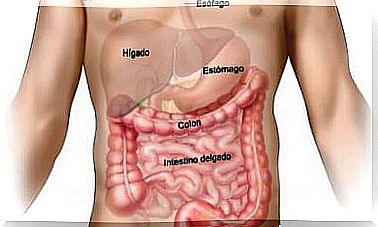What Is Morning Stiffness In Fibromyalgia Patients?
Morning stiffness in fibromyalgia patients is a symptom that deserves special evaluation. Since it has characteristics similar to those of rheumatoid arthritis and other inflammatory disorders, both its diagnosis and its treatment are often difficult.
In fact, this and other manifestations of fibromyalgia should be followed up by a rheumatologist or physician trained in the subject. They are the only ones with the doctors to determine if they have to do with this syndrome.
Unfortunately, an inexperienced doctor does not consider the possibility of this disease and makes misdiagnoses that undoubtedly reduce the effectiveness of treatment. Although it is a problem that has no cure, some therapies and medications can minimize it to improve the quality of life.
What is fibromyalgia?
Before going into detail about morning stiffness in fibromyalgia patients, let’s review some relevant aspects of the disease. Fibromyalgia is a chronic musculoskeletal disorder characterized by an increased response of the body to muscle and joint pain.
It does not have a defined organic cause, but it is related to genetic factors, disorders in the nervous system and other diseases. In fact, affected patients can have several pathologies at the same time.
In each organism it can manifest itself in different ways; however, it generally causes an inflammatory response that leads to other symptoms. For this reason, in general, patients experience:
- Severe pain in your limbs and muscles.
- Digestive problems.
- Headaches.
- Tingling sensation.
- Concentration problems.
- Fatigue and exhaustion.
- Poor quality of sleep
- Sensitivity to changes in temperature.
- Anxiety and depression.
Morning stiffness in fibromyalgia patients

Fibromyalgia patients may have stiffness and discomfort throughout the day. However, symptoms are often more intense in the morning. For this reason, morning stiffness is understood as that tension that affects the muscles and joints in the first hours after waking up.
That stiff sensation can be accompanied by severe pain and difficulty in movement. Although it can stay for half an hour or an hour, it sometimes lasts throughout the day. Therefore, it prevents the performance of even basic daily tasks.
Most fibromyalgia patients perceive this symptom in regions such as the cervical (neck), back, and extremities. For this reason, when it remains for many hours, it is difficult for them both to rest and to stand, especially if their mobility is reduced.
Why does morning stiffness occur in fibromyalgia patients?
The causes of morning stiffness in fibromyalgia patients have been explained through different theories. Until a few decades ago it was thought that its origin could be the psychological alterations that affected the poor quality of sleep.
Thus, due to this incidence, neurotransmitter decontrols increased and muscle spasms recurred in the morning. In summary, it would then be said that the cause is due to a “bad sleep” that, incidentally, produces a “bad awakening”.
But at present these theories have been revised and updated, adding other concepts studied later. Therefore, today it is suggested that the problem can arise from different causes. For example, oxygenation deficiencies, inflammatory processes or infectious processes, among others.
Tips for trying to reduce morning stiffness

Ignorance of the exact causes of fibromyalgia has made its treatment difficult. Despite this, there are a number of general recommendations that can have a positive impact on how the patient feels in the morning and throughout the day.
General treatment for the disease includes physical activity, improved sleep, pain relievers, and control of emotional symptoms. However, specifically, steps that can help minimize stiffness and pain include:
- Do stretching exercises while still in bed to improve body flexibility.
- Take a hot shower to relax your muscles and ease pain.
- Take the pain reliever recommended by the doctor about 30 minutes before getting out of bed.
- Limit the consumption of alcoholic beverages, coffee, and nicotine.
- Get into a good sleeping position to maintain good blood flow.
- Avoid environments that are too humid or cold.
- Improve your diet and, above all, avoid dairy products, sweeteners and simple carbohydrates (flours and refined ones).
- Maintain a healthy body weight.
- Drink infusions on an empty stomach and consume water throughout the day.
- Do therapies to avoid stress.
- Waking up each day with optimistic thoughts, even when there are relapses. It is difficult, but it can help you to be more assertive and positive the rest of the day.
A final thought
As a final reflection we want to highlight the importance of understanding the disease. Both patients and their families should be aware of the symptoms involved and the difficulties in controlling them.
Sometimes, when there is not enough understanding of what is happening, the person tends to fall more easily into depression and anxiety. Therefore, there must be a lot of patience, respect and affection.









